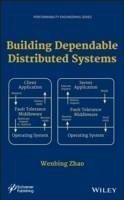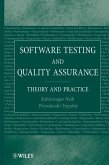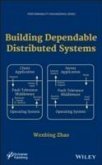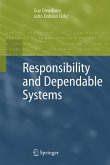A one-volume guide to the most essential techniques for designing and building dependable distributed systems Instead of covering a broad range of research works for each dependability strategy, this useful reference focuses on only a selected few (usually the most seminal works, the most practical approaches, or the first publication of each approach), explaining each in depth, usually with a comprehensive set of examples. Each technique is dissected thoroughly enough so that readers who are not familiar with dependable distributed computing can actually grasp the technique after studying the book. Building Dependable Distributed Systems consists of eight chapters. The first introduces the basic concepts and terminology of dependable distributed computing, and also provides an overview of the primary means of achieving dependability. Checkpointing and logging mechanisms, which are the most commonly used means of achieving limited degree of fault tolerance, are described in the second chapter. Works on recovery-oriented computing, focusing on the practical techniques that reduce the fault detection and recovery times for Internet-based applications, are covered in chapter three. Chapter four outlines the replication techniques for data and service fault tolerance. This chapter also pays particular attention to optimistic replication and the CAP theorem. Chapter five explains a few seminal works on group communication systems. Chapter six introduces the distributed consensus problem and covers a number of Paxos family algorithms in depth. The Byzantine generals problem and its latest solutions, including the seminal Practical Byzantine Fault Tolerance (PBFT) algorithm and a number of its derivatives, are introduced in chapter seven. The final chapter details the latest research results surrounding application-aware Byzantine fault tolerance, which represents an important step forward in the practical use of Byzantine fault tolerance techniques.
Dieser Download kann aus rechtlichen Gründen nur mit Rechnungsadresse in A, B, BG, CY, CZ, D, DK, EW, E, FIN, F, GR, HR, H, IRL, I, LT, L, LR, M, NL, PL, P, R, S, SLO, SK ausgeliefert werden.
Hinweis: Dieser Artikel kann nur an eine deutsche Lieferadresse ausgeliefert werden.









